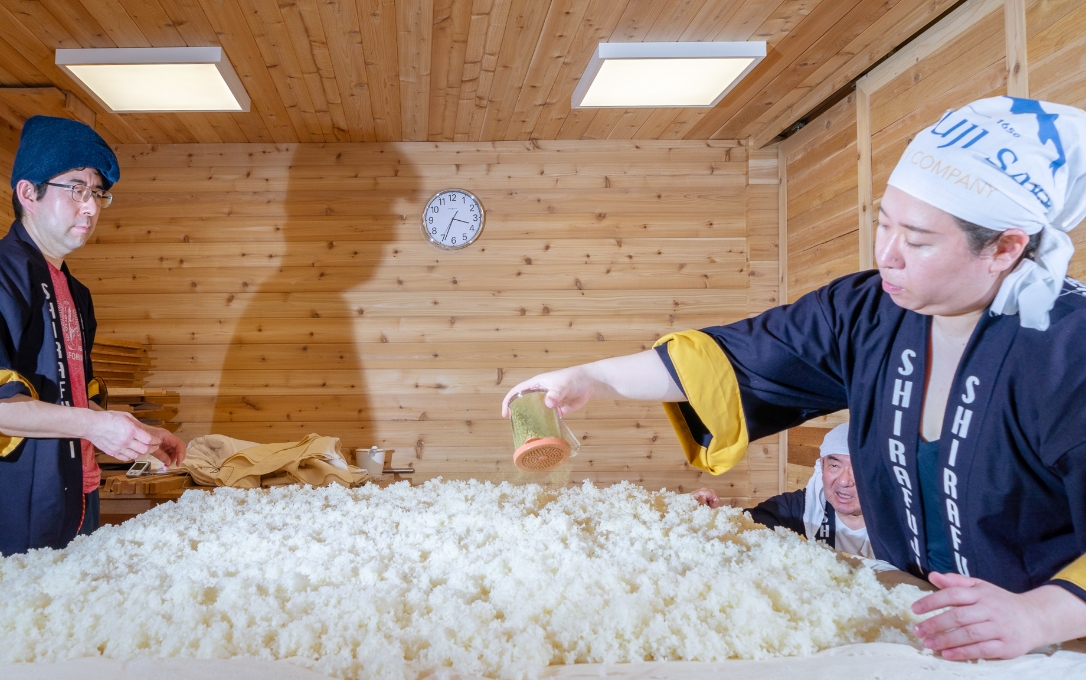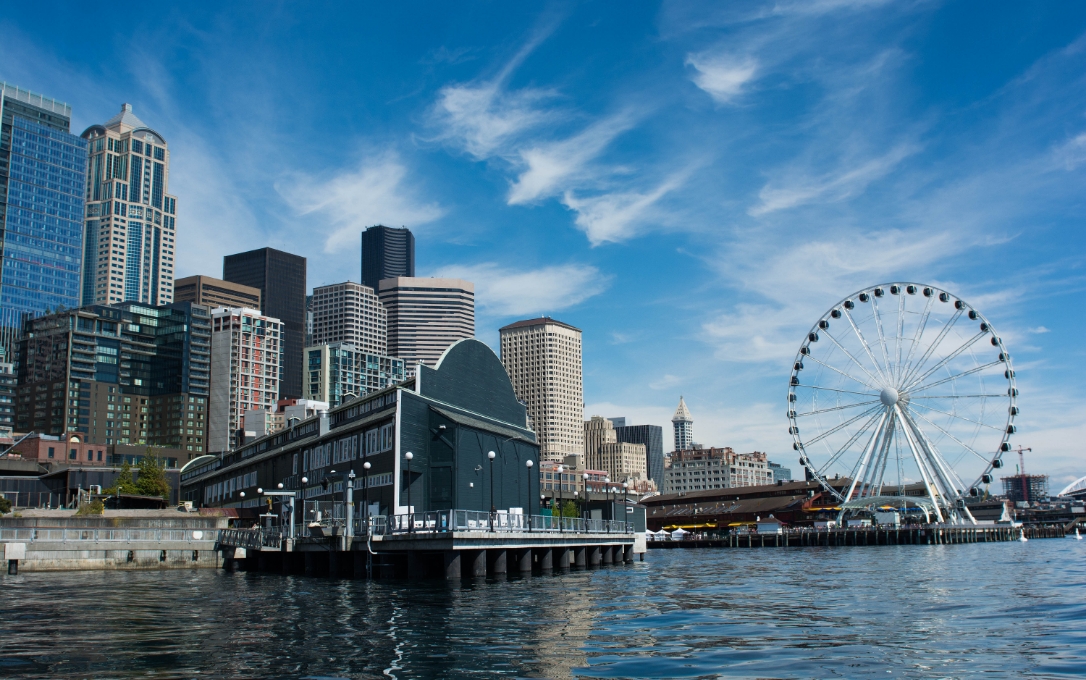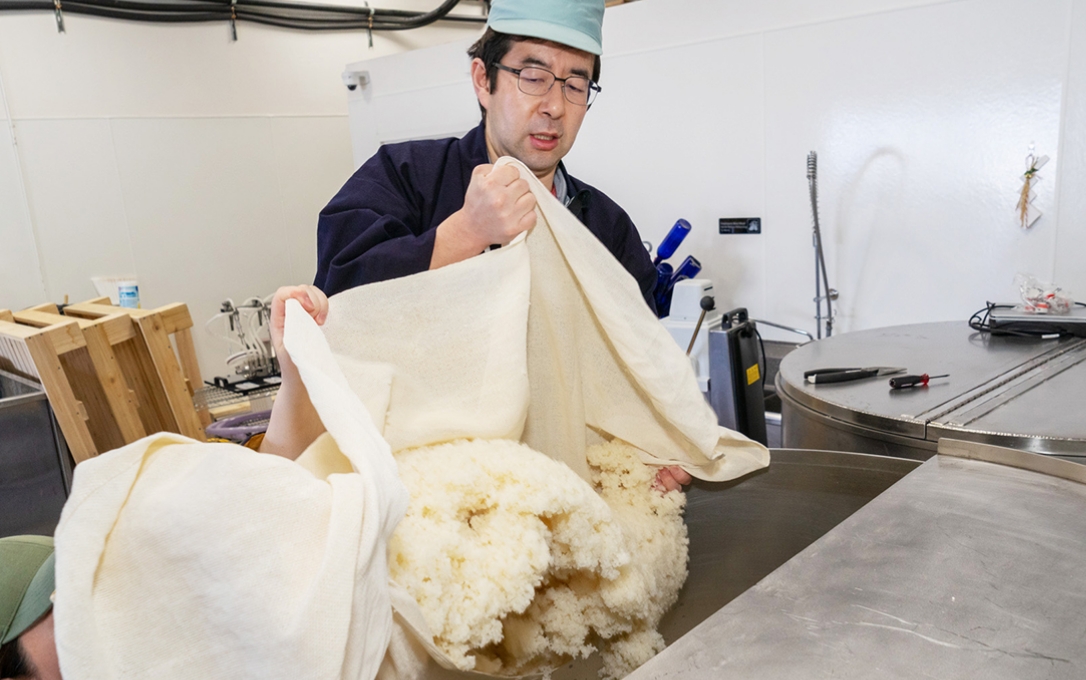Our Story
made in Seattle, origin in Fukushima

Revisiting a 300-Year-Old Sake
Brewery: The East Japan
Earthquake and Nuclear Disaster
The Tomisawa Sake Brewery Co. Ltd. was established around 1650 by Tomisawa Riemon, the seventh generation head of the Tomisawa family. The Tomisawa Sake Brewery Co., Ltd. operated as a sake brewery for over 300 years in Futaba Town, Fukushima Prefecture up until the current 20th generation head, Shuhei Tomisawa, and his son, the 21st generation head, Mamoru Tomisawa. However, in 2011, the Great East Japan Earthquake caused a tsunami, leading to a disaster at the Fukushima Daiichi Nuclear Power Plant. As a result, the sake brewery, located only two miles away from the nuclear plant, was lost.
After the disaster, the family tried negotiating with dozens of closed or closing sake breweries across Japan to aid in the country’s reconstruction. However, due to regulations such as the Alcohol license Law and the Alcohol Business Law, they had to give up on their revival plans, and it seemed as though the Tomisawa Sake Brewery would have to bring its 300-year history to an end.
In October 2012, almost ready to give up on the brewery’s revival, the 21st generation head’s sister, Mari Tomisawa, visited Seattle during her travels. She felt a connection to the city’s beautiful autumn scenery and sensed the spirit of her hometown which had been lost due to the earthquake. The thought of being able to brew sake in Seattle sparked within her.

Upon returning to Japan, she
decided that her family would move
to Seattle and relocate the brewery
after 300 years.
A significant turning point occurred when, one month after the trip, a second-generation Japanese-American (Nisei) visited the Tomisawas in Japan. He had experienced internment during World War II and shared the history of the internment camps, the struggles of Japanese-Americans, and their journey to form new bonds with the American people. He encouraged them by saying, “You were also manipulated by the government. Japanese-Americans are now making more friendships in America. Try making sake in Seattle; venturing into America only requires courage.” These words convinced them to go to the United States. Moreover, Woodinville, where the brewery was relocated, resembled their lost hometown in Japan. They were unable to speak the language and had no experience living in America, but they had confidence in making delicious Japanese sake. With that in mind, they moved their family to Seattle with their cats.

Overcoming the Pandemic and
Completing the Brewery with Local
Seattle Craftsmen
After overcoming numerous challenges, the Tomisawas could finally see the prospect of reopening their brewery. However, just one week after securing a location, the pandemic struck, putting everything on hold for more than three years. In particular, they faced difficulties in sending sake brewery equipment from Japan.
Despite the challenges and obstacles they found a way. They decided to collaborate with a local Seattle architect and build a sake brewery with locally sourced materials. Sergio Chin-Ley, the architect they approached, actively studied traditional Japanese sake breweries and, through discussions and mutual understanding, they successfully built the brewery together, labeling it “Made in Seattle.”

Dedicating Themselves to Using
American-Grown Yamada Nishiki,
the King of Sake Rice
They also paid special attention to using American-grown sake rice. They selected Yamada Nishiki rice grown for sake production at Isbell Farm in Arkansas. Isbell Farm has learned from and adopted Japan’s rice cultivation techniques, ensuring the production of high-quality rice. Besides producing table rice, they grow nearly ten different types of sake rice.
Choosing the right sake rice was a challenging decision for the Tomisawa brewery. To make best use of the new koji room at the brewery, they needed rice suitable for Seattle’s water and environment, and thus they settled on using Yamada Nishiki, known as the “King of Sake Rice,” which ferments well.
From Seattle,
Spreading Japanese Culture
Through Sake
SHIRAFUJI SAKE BREWERY COMPANY, which has now begun traditional sake brewing in Seattle,
aims to preserve its 300-year-old tradition while continually incorporating
new technology andlocal culture to create “Seattle’s local sake.”
They aspire to promote Japanese sake from Seattle around the country,
encourage more people to enjoy it, and to make the brewery a place to promote
other aspects of Japanese culture.
